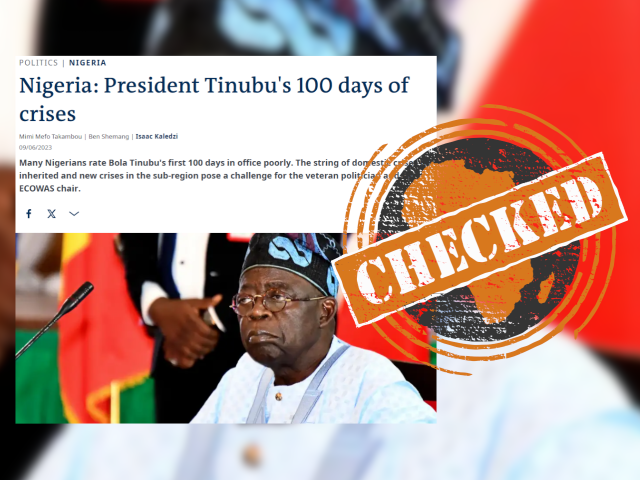This article is more than 5 years old
- Presidential candidate Kingsley Moghalu said Nigeria’s 2019 elections would cost US$625 million, more than the US$600 million spent on India’s 2014 elections.
- Nigeria’s budget for the 2019 poll is US$618 million. India spent US$645 million on its 2014 poll.
- Moghalu also said Nigeria’s voting population was six times smaller than India’s. It is 10 times smaller.
The Independent National Electoral Commission should explain why the elections would be “astronomically expensive”, Moghalu, a former central bank deputy governor, tweeted in August 2018.
“India’s 2014 elections cost US$600 million, in which over 500 million people voted,” he wrote. “Our elections will cost US$625 million for a voting population that is six times smaller than India’s.”
Moghalu, a professor of practice in international business and public policy, wants the bill reduced by “tackling wasteful spending and corruption in the public procurement process”.
But do his figures add up? Here’s what we found.
Africa Check contacted Moghalu for his evidence and he directed us to a report titled The Cost of Running Elections – A Cross Country Comparison. It was published in December 2015 by the National Institute of Legislative and Democratic Studies, a parliamentary research institution.
The report said Nigeria’s election agency spent US$625 million in the country’s 2015 general elections.
Moghalu also provided links to media reports estimating that India’s 2014 general election directly cost the country’s government US$600 million.
Moghalu tweeted that US$625 million would be spent on Nigeria’s 2019 elections. In August 2018 the election agency told parliament it needed N189.2 billion (US$618 million at the current Central Bank exchange rate of N306 to a dollar) for the elections.
Twenty-six of the 36 states will vote in February and March 2019, with the other states voting on other dates.
India’s 2014 poll cost the government 38.7 billion Indian rupees according to a 2016 report on the poll by the country’s election manager. This was about US$645 million at the May 2014 exchange rate. (Note: Both estimates exclude the cost of maintaining law and order and expenses such as advertising.)
Comparing electoral spend not straightforward
The similarity in the spend would suggest India’s political system was more stable and so more efficient Dr Ferdinand Otto, a political science lecturer at the University of Lagos, told Africa Check.
Care should however be taken when directly comparing the cost of elections held four years apart and on different continents, Dr Magnus Ohman, a senior political finance adviser at the International Foundation for Electoral Systems, told Africa Check.
And if one wanted to check the impact of the budgeted spend on the local people, factoring in price levels would make for a fairer comparison, World Bank economist Mizuki Yamanaka told Africa Check.
Moghalu’s Nigeria figure of US$625 million is close to the dollar cost of India’s 2014 elections. But it doesn’t take into account the differences in political systems, or in the cost of goods and services in the two countries.
We therefore rate his claim as mostly correct.
India had 834 million registered voters for its 2014 elections, according to Election Commission of India data.
For the 2015 general elections Nigeria had 68.8 million registered voters. By August 2018 it had “over 80 million citizens” on its voter register, the head of the electoral agency, Mahmood Yakubu, said in an interview.
New voter listing closed on 31 August 2018.
Nigeria’s voting population is about 10 times smaller than India’s, not six times as Moghalu said. We therefore rate the claim as incorrect.
Edited by David Ajikobi
Further reading:
https://africacheck.org/reports/nigerian-joblessness-at-all-time-high-checking-a-politicians-claims/
https://africacheck.org/reports/crisis-in-nigerian-schooling-grading-three-claims-by-presidential-hopeful/
https://africacheck.org/reports/buharis-2018-democracy-day-speech-7-main-claims-under-scrutiny/





Add new comment